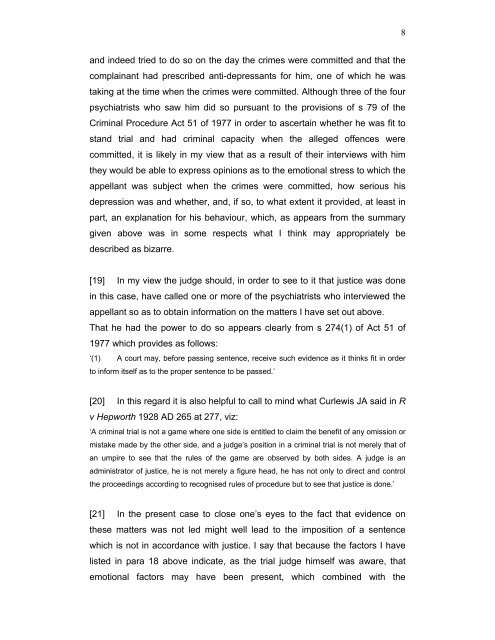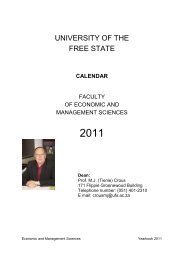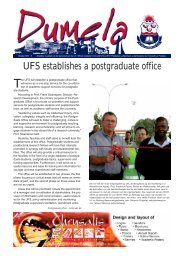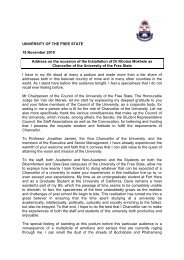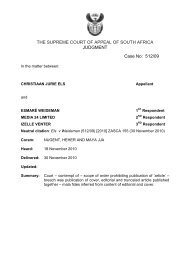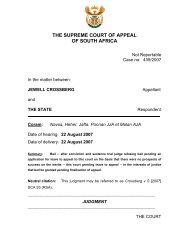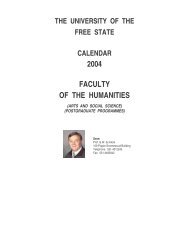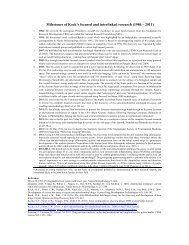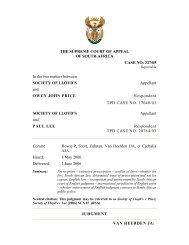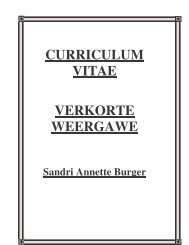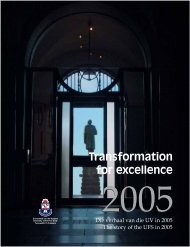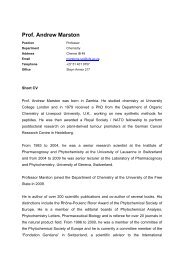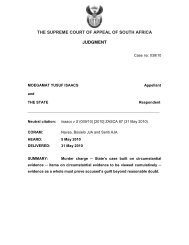THE SUPREME COURT OF APPEAL OF SOUTH AFRICA
THE SUPREME COURT OF APPEAL OF SOUTH AFRICA
THE SUPREME COURT OF APPEAL OF SOUTH AFRICA
- No tags were found...
Create successful ePaper yourself
Turn your PDF publications into a flip-book with our unique Google optimized e-Paper software.
8and indeed tried to do so on the day the crimes were committed and that thecomplainant had prescribed anti-depressants for him, one of which he wastaking at the time when the crimes were committed. Although three of the fourpsychiatrists who saw him did so pursuant to the provisions of s 79 of theCriminal Procedure Act 51 of 1977 in order to ascertain whether he was fit tostand trial and had criminal capacity when the alleged offences werecommitted, it is likely in my view that as a result of their interviews with himthey would be able to express opinions as to the emotional stress to which theappellant was subject when the crimes were committed, how serious hisdepression was and whether, and, if so, to what extent it provided, at least inpart, an explanation for his behaviour, which, as appears from the summarygiven above was in some respects what I think may appropriately bedescribed as bizarre.[19] In my view the judge should, in order to see to it that justice was donein this case, have called one or more of the psychiatrists who interviewed theappellant so as to obtain information on the matters I have set out above.That he had the power to do so appears clearly from s 274(1) of Act 51 of1977 which provides as follows:‘(1) A court may, before passing sentence, receive such evidence as it thinks fit in orderto inform itself as to the proper sentence to be passed.’[20] In this regard it is also helpful to call to mind what Curlewis JA said in Rv Hepworth 1928 AD 265 at 277, viz:‘A criminal trial is not a game where one side is entitled to claim the benefit of any omission ormistake made by the other side, and a judge’s position in a criminal trial is not merely that ofan umpire to see that the rules of the game are observed by both sides. A judge is anadministrator of justice, he is not merely a figure head, he has not only to direct and controlthe proceedings according to recognised rules of procedure but to see that justice is done.’[21] In the present case to close one’s eyes to the fact that evidence onthese matters was not led might well lead to the imposition of a sentencewhich is not in accordance with justice. I say that because the factors I havelisted in para 18 above indicate, as the trial judge himself was aware, thatemotional factors may have been present, which combined with the


